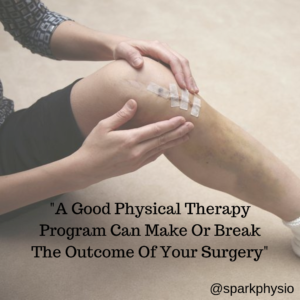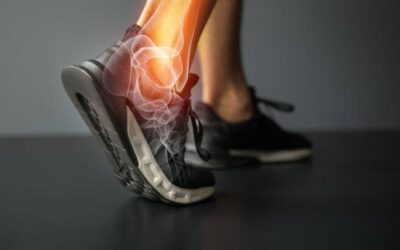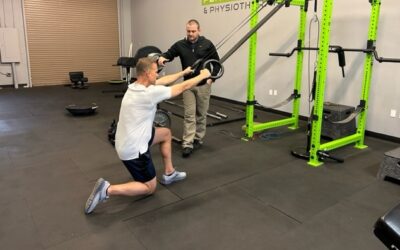
I am still surprised when I receive emails asking me “why do I need physical therapy after surgery?” And here I thought physical therapy after surgery was common knowledge since I am coming into the field of physical therapy. I was wrong.
Unfortunately, I have encountered my fair share of the “do-it-yourselfers.” They skipped the physical therapy after their surgery and realized a year or two later that it may have been a mistake. Those who attempted to do rehab by themselves don’t realize what they missed out on. That is until they looked at the calendar and realize that it has been a year since their surgery. Yet they still can’t reach overhead…stairs are still avoided…and they are still getting that back pain while going on vacations that their surgeon said they wouldn’t have anymore.
A GOOD physical therapy program can make or break the outcome of your surgery.
Trust me when I say this: NOT ALL PHYSICAL THERAPY CLINICS ARE THE SAME. You can read more about that here.
Here are the top 6 reasons to go to physical therapy after surgery:
Address Pain
Having surgery can be painful. It is literally causing trauma via a scalpel, to your skin and the underlying tissues. This causes a pain response. Everyone has a different pain response and tolerance, but some sort of pain is almost inevitable after surgery. If a good physical therapy program is not completed, the initial pain of the surgery may become chronic pain.
Increase Strength
Our bodies tend to lose strength very quickly. It is important to regain the strength you had prior to surgery, improve it, and make sure the rest of your body stays strong. You need to gradually progress through a strength program so that you don’t reinjure yourself. A physical therapist can answer questions of how much to lift, when to lift, and how to progress safely. The right dosage of strength training is important!
Improve Your Motion
It is likely you will have some sort of motion restriction present after surgery. This can be from pain, swelling, strength, or physician ordered. Our bodies are great at protecting areas by limiting motion. The adage of “if you don’t move it, you lose it” rings true for post-surgery patients. It is important to protect the surgery, but a physical therapist can safely guide you in restoring your motion.
Return To Sport
After surgery, the first thing I get asked from my athletes and active adults is “when can I return to (insert activity)?” This is highly variable between each person. There are some “guidelines” your doctor might give you, but these are based on time and not based on your recovery progression. A good physical therapy program will set up goals for you to achieve to safely return to your desired activity. Not everyone heals at the same rate.
Reduce Secondary Surgeries
If you don’t regain your motion back in a certain amount of time, you are at risk for another surgery. Say you decide to return to your sport or activity too early, you may be at risk of re-injuring yourself. If you don’t want to risk going under the knife for a second time, for the same or similar issue, find yourself a good physical therapist to help you reduce the risk of a second surgery.
Continue To Be Active
I see people often get discouraged and un-motivated following surgery. They get told to stop moving and just rest by their family, friends, and even the surgeons. Anybody who is active, this is almost a death sentence. You should almost never accept bed-rest as a recommendation for healing. A good physical therapist will be able to help you modify your workouts to work around your recovery from surgery.
Thinking about rehabilitating after surgery on your own? I hope this article has convinced you otherwise!
Keep in mind NOT ALL PHYSICAL THERAPY IS THE SAME.
Choose Spark Performance and Physiotherapy for your post-surgical rehabilitation needs and accelerate your recovery time!




